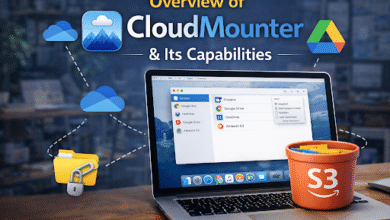Will the Rise in Bulk B2B Solar Panels Continue in 2026?

The solar energy market has seen impressive growth in recent years, with businesses across the UK increasingly turning to renewable energy solutions. For those in the trade, including solar installers, wholesalers, and commercial developers, bulk solar panel supply has become a key part of this momentum. The question now is whether this upward trend will continue into 2026. Looking at current patterns, market incentives, and the shift toward sustainability, it seems the demand for bulk B2B solar panels is set to remain strong.
Growing Demand for Commercial Solar Energy
Businesses are now placing greater importance on sustainability, not only for environmental reasons but also for economic benefits. Solar energy has become one of the most reliable ways for companies to cut energy costs and reduce carbon emissions. This shift has created consistent demand for bulk solar panels from commercial installers and project developers.
Warehouses, retail parks, and manufacturing facilities are now common sites for large-scale solar installations. As these projects increase in scale, so does the need for reliable wholesale suppliers that can deliver solar panels, batteries, and inverters in high volumes. The growing number of tenders and long-term solar contracts also reflects the steady rise in commercial investment within the renewable sector.
The Role of Government Support and Regulation
Government policies continue to influence the pace of solar adoption. While feed-in tariffs have been phased out, new incentives and funding programmes still encourage businesses to switch to renewable energy. The Smart Export Guarantee allows companies to earn income from surplus energy, while corporate sustainability targets and energy efficiency standards continue to drive commercial uptake.
Many local councils and public sector organisations are also expanding solar adoption in their buildings and facilities. This public sector demand contributes to the overall growth in wholesale supply, as contractors and installers require access to dependable sources for panels and related equipment. With national targets aiming for net zero emissions, solar installations remain central to the UK’s clean energy strategy.
Solar Battery Storage and Energy Independence
Another factor fuelling demand is the rapid development of solar battery technology. Businesses are no longer satisfied with simply generating solar power during daylight hours. They now want to store excess energy to manage costs and improve energy independence. This shift has opened new opportunities in the B2B market with the rise of wholesale solar panel distributors.
The increasing use of solar storage systems also supports grid stability and makes solar power more attractive to industries with high energy demands. As energy prices continue to fluctuate, more companies will likely invest in full-scale solar solutions that include panels, batteries, and efficient inverters, all sourced through wholesale supply.
The Rise of EV Integration and Smart Energy Systems
As electric vehicles become more common in commercial fleets, the demand for EV wall chargers has grown alongside solar installations. Businesses are increasingly integrating solar power with EV charging stations to reduce operating costs and demonstrate environmental commitment.
For wholesalers, this has created an additional revenue stream that complements traditional solar components. Installers are now seeking full package solutions that include solar panels, inverters, batteries, and EV chargers, all supplied from one trusted source. This integration of smart energy systems reflects the broader trend toward complete renewable infrastructure rather than stand-alone installations.
The Role of Technology and Innovation
Innovation continues to shape the solar industry. Modern solar panels are more efficient and longer-lasting than ever before, allowing companies to produce more energy from less space. The same is true for bulk solar panel batteries, inverters and mounting systems, which have become easier to install and maintain.
Many B2B buyers now look for suppliers that provide technical support and product training, helping installers stay ahead of the latest technology. Offering expertise alongside equipment helps wholesalers build lasting relationships with trade customers. As competition in the renewable energy sector grows, service and reliability will become just as important as price.
Opportunities for Installers and Developers
The ongoing expansion of solar infrastructure presents strong opportunities for both installers and developers. Large commercial and industrial projects are now being planned across the UK, particularly as businesses seek to protect themselves against volatile energy costs.
By sourcing panels and components in bulk, installers can offer better pricing to their clients while maintaining healthy profit margins. Wholesale suppliers that stock complete system components also help streamline projects by reducing lead times and logistics complexity. This level of support is a major advantage in a competitive and time-sensitive industry.
Looking Ahead to 2026
All signs suggest that the rise in bulk B2B solar battery panel supply will continue into 2026. The combination of government targets, improving technology, and growing commercial interest means demand will remain steady. Wholesale suppliers that adapt to this growth by diversifying product ranges and strengthening partnerships with installers will be well-positioned for long-term success.
As solar energy becomes more accessible and efficient, it will continue to form the foundation of sustainable business operations across the UK. The future of bulk B2B solar supply looks bright, and companies that invest in strong distribution and service networks will remain at the forefront of this expanding industry.



